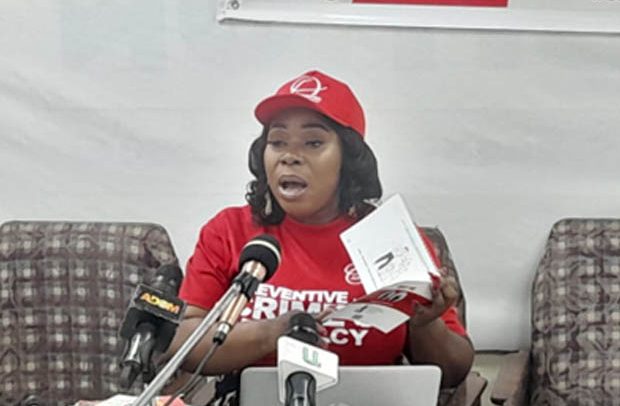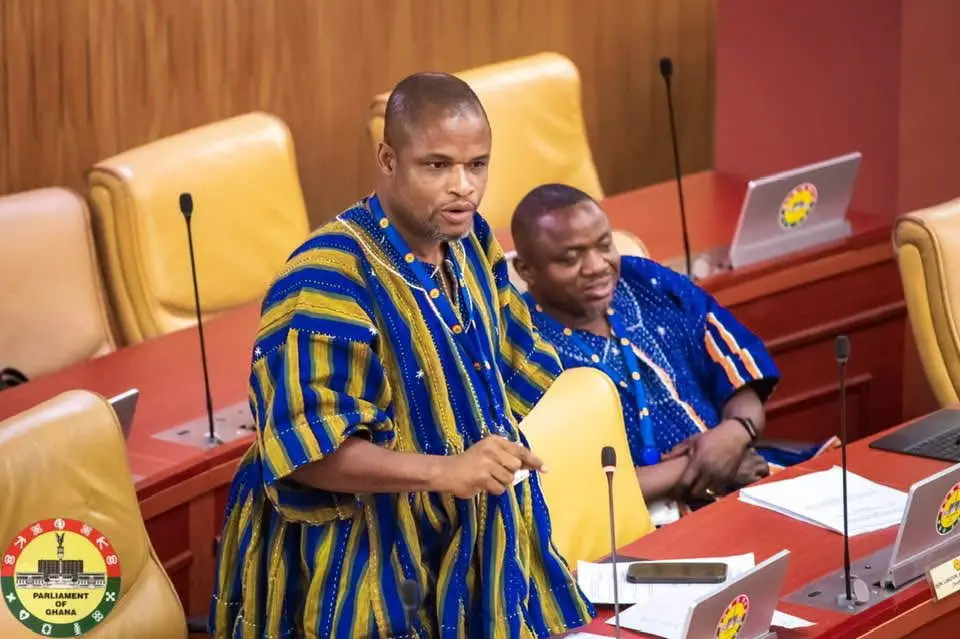
By Kweku SERSAH–JOHNSON
There was a general cry in the land. For over two decades, from across the country came loud voices clamoring for the passage of the Right To Information Bill.
Led by Civil Society and Non-Governmental Organizations including the Media Foundation for West, the CDD, the Ghana Journalists Association, the Media Commission , the Ghana Independent Broadcasters Association and outspoken individuals, the Act of Parliament was eventually passed on March 26, 2019 to open doors to the constitutionally guaranteed right to information of the people of Ghana.
The movement for the passage of the Bill was in consonance with the 1992 Constitution of Ghana which provides for Freedom of Information under Article 21 (1)(f) which clearly states that “All persons shall have the right to information, subject to such qualifications and laws as are necessary in a democratic society”.
It is perhaps, worth noting that Ghana belongs to several international instruments and conventions which provide for the enactment of Freedom of Information legislation including the famous Universal Declaration of Human Rights and Article 19 of the International Covenant on Civil and Political Rights.
Again, Article 9 of the African Union (AU) Convention on Combating Corruption demands on all State Parties to adopt legislation and to put in other appropriate measures which cushions the right to access any information needed to assist in the fight against corruption and related offences on the continent.
The Right to Information Bill as passed by the Parliament of Ghana provides for the implementation of the constitutional right to information held by a public institution, subject to the exemptions that are necessary and consistent with the protection of the public interest in a democratic society, to foster a culture of transparency and accountability in public affairs and to provide for related matters. The Bill received Presidential assent on May 21, 2019.
RTI COMMISSION
The Right To Information Commission was set up under Section 40 of the Right To Information Act, (RTI Act), 2019 (Act 989) to implement the Act. In October 2019, a 7-member Board of Governors was sworn into office with specific powers and functions to make decisions in the review of applications, record-keeping instructions, proactive disclosures, receiving and assessing complaints from applicants whose request for information have been declined.
The Commission also holds the powers to issue administrative penalties to institutions which fail to comply with Act 989. Its decisions are conclusive and legally binding but the law permits parties to proceed to Court if they disagree with a decision of the Commission.
With the vision to facilitate the right of access to information, promote and sustain awareness of the citizenry on their bona fide right to the smooth access of information as well as the obligation of institutions to disclose information, the Commission, in consultation with stakeholders drew up a Strategic Plan to guide its policy formulation, activities and programmes.
The strategic Plan thus focuses on making information easily accessible and usable to the public , enhancing capacity for policy formulation and coordination by staff of the Commission, promoting greater understanding and usage of RTI law at all levels including Basic and Secondary education, deepening transparency and public accountability by duty bearers and stakeholders, making Ghana a model implementing country of RTI Law in Sub-Saharan Africa and ensuring compliance of the RTI law by all public and relevant private institutions.
SO FAR SO GOOD
Last year (2024), under the auspices of the Commission, public institutions across the country received two thousand five hundred and seventy-five information requests, up to forty seven percent (47%) from 2023 with an approval proportion of sixty eight (68%).It is interesting to note that most of the requests were from the Greater Accra Region, which clearly indicates regional disparities in awareness and access.
Three hundred and forty-five (345) Annual reports were submitted by institutions, once again with Accra in the lead. The Commission also received One hundred and twenty-three (123) applications for review, the highest to date, resolving seventy-three percent (73%) and issued multiple binding determinations. Administrative penalties were imposed on non-compliant institutions, including Banks, Ministries and Metropolitan, Municipal and District Assemblies.
Executive Secretary, Right To Information Commission data-medium-file=https://i0.wp.com/thebftonline.com/wp-content/uploads/2025/10/RIGHT2.png?fit=300,337&ssl=1 data-large-file=https://i0.wp.com/thebftonline.com/wp-content/uploads/2025/10/RIGHT2.png?fit=388,436&ssl=1 class= wp-image-246354 src=https://i0.wp.com/thebftonline.com/wp-content/uploads/2025/10/RIGHT2.png?resize=573,643&ssl=1 alt= width=573 height=643 srcset=https://i0.wp.com/thebftonline.com/wp-content/uploads/2025/10/RIGHT2.png?resize=300,337&ssl=1 300w, https://i0.wp.com/thebftonline.com/wp-content/uploads/2025/10/RIGHT2.png?resize=222,250&ssl=1 222w, https://i0.wp.com/thebftonline.com/wp-content/uploads/2025/10/RIGHT2.png?resize=374,420&ssl=1 374w, https://i0.wp.com/thebftonline.com/wp-content/uploads/2025/10/RIGHT2.png?w=388&ssl=1 388w sizes=(max-width: 573px) 100vw, 573px />
Executive Secretary, Right To Information Commission
These statistics represent a substantial increase in the RTI space as against 2021 when only One hundred and eighty-nine (189) reports were received from public institutions, out of which 117 were from MDA’s and 72 from MMDA’s.
The Commission has over the years engaged in strategic partnership with key local and international institutions including STAR-Ghana, the German Society for International Cooperation (GIZ), the Open Government Partnership/European Union (OGP/EU), the Ministry of Information now Office for Government Relations, the Media Foundation for West Africa, the International Republican Institute (IRI) and the International Commissioner’s Office of England.
The Commission provided targeted training for Civil Society Organizations (CSOs) and Information Officers in 12 Regional Capitals with the lowest levels of RTI-related activities
LEGISLATIVE INSTRUMENT
A landmark activity of the Commission has been the drafting of a Legislative Instrument (LI) intended to facilitate the effective implementation of the Right To Information Act 2019, (Act 989). As part of the pre-laying process, extensive consultations have been held with key stakeholders including the Ministry of Information, the Ministry of Justice and Attorney-General’s Department and the Parliamentary Committee for Subsidiary Legislation. The European Union has been very supportive to the Commission in the development of the LI, the passage of which is expected to provide a comprehensive legal framework to among others, establish a clear procedural guideline for the processing of information requests, standardize compliance mechanisms across institutions and enhance public enforcement of Act 989.
The Commission has embarked on efforts in expanding its presence in the country as part of its determination to ensure that a vast majority of the citizenry are informed and are made to enjoy the benefits of an open society. In addition to Bolga in the East Region where offices of the Commission are in operation with the collaboration the Regional Coordinating Council and the Information Services Department, plans are underway by the Commission to open offices in the Eastern, Volta, Central, Western and Northern Regions before the end of the year. It is heartwarming to note that the Ghana Broadcasting Corporation (GBC) in the spirit of goodwill has agreed to offer the Commission with four offices in Koforidua, Sekondi, Ho and Tamale. Negotiations are far advanced with Ghana Post to provide office space for the Commission in Cape Coast.
The 5th anniversary of the Commission, according to the Executive Secretary, Genevieve Shirley Lartey comes as a valuable tool to carry out scientific assessment of progress so far, evaluate progress, achievement and challenges and to marshal out plans for the future. The climax of the activities include a Stakeholders Conference at the Movenpick Ambassador Hotel in Accra on Thursday October 23, 2025 and a Thanksgiving Service at the Christ Church at the University of Ghana on Sunday October 26, 2025.
The Minister of State for Government Relations, Felix Ofosu Kwakye holds the view that the Commission has made modest gains in its five years of existence ‘irrespective of what appears to be teething challenges’, wishing them a brighter future for the good of the country. He disclosed that a new Board of Governors for the Commission is expected to be inaugurated by President John Dramani Mahama on November 3. 2025.
The writer is the Technical Advisor, RTIC
The post Right to Information Commission: Five years on appeared first on The Business & Financial Times.
Read Full Story


























Facebook
Twitter
Pinterest
Instagram
Google+
YouTube
LinkedIn
RSS